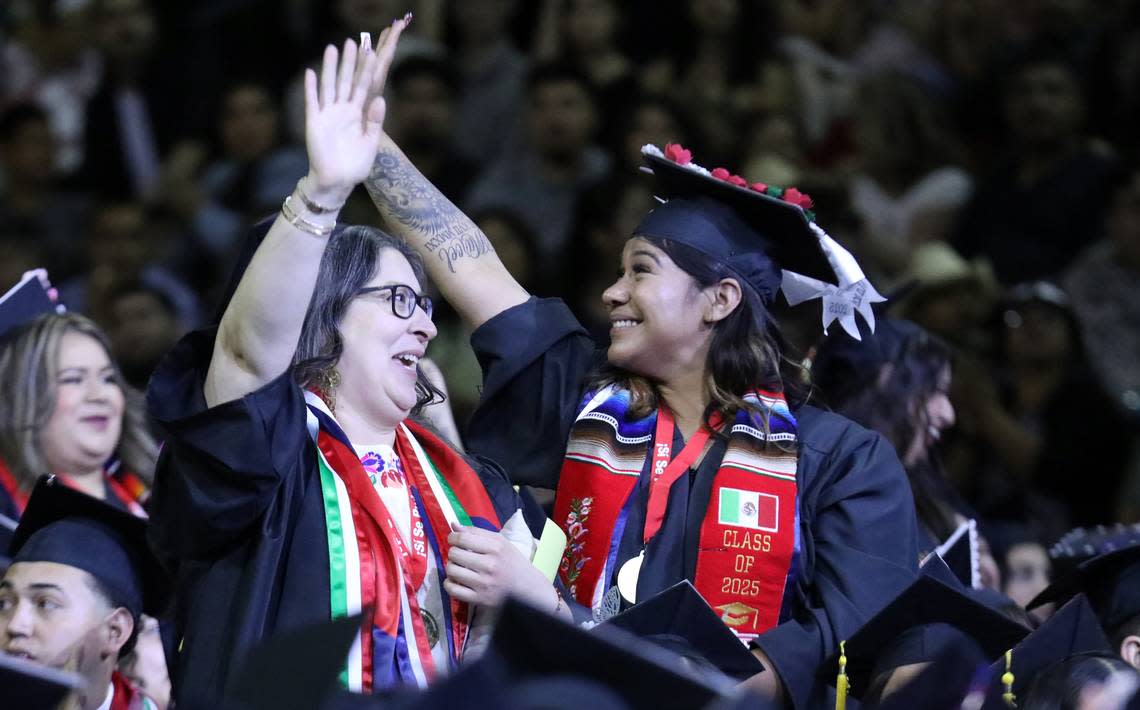Despite President Donald Trump’s attempts to eliminate affinity graduation ceremonies, these culturally significant events continue to flourish across the United States. Communities and educational institutions are standing firm, celebrating diversity and inclusion in the face of political opposition.
The Administration’s Stance Against Affinity Graduations
The Trump administration has made several moves to dismantle diversity, equity, and inclusion (DEI) initiatives. In January 2025, a series of executive orders aimed to terminate DEI programs across federal agencies, including educational institutions. These orders sought to eliminate what the administration termed “radical and wasteful” programs, impacting numerous federal employees and initiatives.
Affinity graduations, which honor the achievements of students from marginalized communities, became a focal point in this crackdown. Critics argue that these ceremonies promote division, while supporters view them as essential for recognizing the unique challenges and accomplishments of diverse student groups.
Judicial Pushback and Legal Challenges
The administration’s efforts have faced significant legal hurdles. Federal judges have blocked several executive orders related to DEI initiatives. For instance, attempts to dismantle the Department of Education and lay off thousands of employees were halted by court injunctions. Similarly, efforts to shut down institutions like the U.S. Institute of Peace were deemed unlawful.
These legal decisions underscore the judiciary’s role in maintaining checks and balances, ensuring that executive actions do not overstep constitutional boundaries. They also highlight the resilience of institutions committed to diversity and inclusion.
Community Resilience and Continued Celebrations
Despite federal opposition, communities across the nation continue to hold affinity graduations. In regions like California’s Central Valley, schools have proceeded with ceremonies celebrating the achievements of Black, Latino, Asian, and LGBTQ+ students. These events serve as affirmations of identity and community solidarity.
Organizers emphasize the importance of these ceremonies in providing recognition and support to students who have navigated systemic challenges. The continued success of affinity graduations reflects a broader commitment to inclusivity and representation in education.
Broader Implications for DEI Initiatives
The administration’s stance against DEI programs has sparked widespread debate. While proponents argue for a return to merit-based systems, opponents warn that dismantling these initiatives could reverse progress made in addressing systemic inequalities.
Educational institutions, in particular, face the challenge of balancing federal directives with their commitments to fostering inclusive environments. The pushback against affinity graduations is seen by many as part of a larger effort to undermine DEI efforts nationwide.
The Future of Affinity Graduations and DEI Efforts
Looking ahead, the persistence of affinity graduations suggests a continued commitment to diversity and inclusion at the grassroots level. While federal policies may shift, the values upheld by communities and educational institutions remain steadfast.
The ongoing legal battles and public discourse surrounding DEI initiatives will likely shape the landscape of educational policies in the coming years. Stakeholders advocate for open dialogues and collaborative approaches to ensure that progress toward equity is not only preserved but also advanced.
Conclusion
Despite concerted efforts by the Trump administration to curtail diversity-focused initiatives, affinity graduations continue to thrive, symbolizing resilience and the enduring importance of inclusive practices in education. As the nation grapples with these issues, the commitment of communities to celebrate and uplift marginalized voices remains unwavering.
Subscribe to trusted news sites like USnewsSphere.com for continuous updates.
[USnewsSphere.com / apn]





